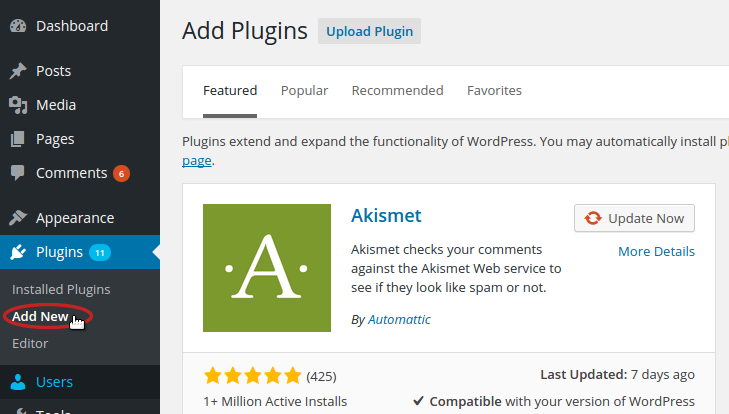
Unlock Your Business Potential: The Power of Google Performance Planner in 2025
BlogWhy Your Business Should Use Performance Planner (And No, It’s Not Just Another Spreadsheet) Let’s cut to the chase: if you’re still planning your marketing budgets and campaigns using gut feelings or—shudders—a dusty Excel sheet from 2018, we need to talk. Imagine a world where your ad spend isn’t just a shot in the dark but a laser-guided missile aimed at actual results. That’s what Google’s Performance Planner does. And trust us, we’ve seen the magic firsthand at Sitelinx Organic SEO Agency here in Los Angeles. Whether you’re juggling Local SEO for your brick-and-mortar shop or scaling an e-commerce empire, this tool is about to become your new best friend. What Even Is Performance Planner? (And Why Should We Care?) Let’s start with the basics. Performance Planner is Google’s AI-powered tool that forecasts how your campaigns could perform based on different budgets, bids, and strategies. Think of it as a crystal ball that actually works (no tarot cards required). Here’s why it’s a game-changer: Predictive Power: It crunches historical data to simulate outcomes, so you’re not just guessing. Budget Optimization: Shows you exactly where to allocate funds for maximum ROI. Spoiler: Your underperforming keywords might get fired. Scenario Testing: Want to see what happens if you double your spend? Or slash it? The tool lets you play “what if” without risking a dime. We’ve used it for clients at Sitelinx—like that vegan bakery in Silver Lake struggling to rank against bigger chains. By tweaking their Google Ads budget with Performance Planner, they doubled their foot traffic in three months. Not bad for a tool that’s free, right? “But We’re Already Using an SEO Company!” Cool. Here’s Why Performance Planner Still Matters Look, we get it. You’ve hired the best SEO company (or so they claim) to handle your rankings. But here’s the thing: SEO and paid ads aren’t rivals—they’re teammates. Performance Planner bridges the gap between your organic efforts (shoutout to our Local SEO experts at Sitelinx) and your paid strategy. For example, let’s say your WordPress site is ranking for “organic skincare Los Angeles” thanks to your SEO specialist. Performance Planner can identify how much to bid on that same keyword in Google Ads to dominate both organic and paid results. It’s like having a double agent working for your brand. FYI: If your current SEO agency isn’t integrating paid and organic strategies, are they even trying? How to Stop Wasting Money (And Start Loving Your ROI) Let’s get real: most businesses hemorrhage cash on ads because they’re either too timid or too reckless. Performance Planner cuts through the noise. Here’s how: Step 1: Ditch the Guesswork No more “Let’s throw $500 at this keyword and pray.” The tool analyzes your campaigns and spits out data-driven recommendations. Step 2: Sync with Your SEO Strategy Pair Performance Planner’s insights with your SEO services. For instance, if your Google Business reviews are boosting local visibility, the tool can allocate more ad spend to capitalize on that momentum. Step 3: Test, Tweak, Repeat Found a sweet spot for your budget? Great. Now test a new headline or landing page. Performance Planner updates forecasts in real time, so you’re always ahead of the curve. At Sitelinx, we once had a client blow $10k/month on broad-match keywords that sounded amazing in theory (“luxury eco-friendly yoga mats,” anyone?). Performance Planner showed them 80% of that budget was wasted. Ouch. But hey, they’re saving $8k/month now—and conversions are up. Performance Planner vs. “DIY” Tools: A Brutally Honest Comparison We’ve all seen those sketchy Facebook ads: “Boost Your ROI With This One Weird Trick!” Here’s why Performance Planner outshines most third-party tools: Feature Performance Planner Generic DIY Tools Data Source Direct from Google Ads Third-party estimates Integration with SEO Seamless Clunky or nonexistent Cost Free $50–$500/month Accuracy Hyper-specific “Eh, close enough” The verdict? Unless you enjoy paying for guesswork, stick with Google’s tool. 4 Burning Questions About Performance Planner (Answered Without the Jargon) 1. “Won’t This Take Hours to Figure Out?” Nope. Set up takes 10 minutes. If you’re drowning in spreadsheets, our team at Sitelinx can handle it while you focus on, y’know, running your business. 2. “What If We’re a Small Business?” Performance Planner scales. Whether you’re spending $500 or $50k/month, it’s about efficiency—not size. We’ve used it for mom-and-pop shops and Fortune 500s. 3. “Does It Work with WordPress Sites?” Absolutely. It doesn’t care if your site’s built on WordPress, Shopify, or HTML circa 1999. It’s all about your ad data. 4. “Can It Fix My Terrible ROI?” IMO, yes—but only if you act on its recommendations. It’s like hiring a personal trainer and then skipping the gym. Ready to Stop Leaving Money on the Table? Here’s the deal: Performance Planner isn’t just another shiny tool. It’s the secret weapon we use at Sitelinx Organic SEO Agency to turn “meh” campaigns into profit machines. And hey, if setting this up feels overwhelming, we’re just a call away. (We’ll even throw in a joke about spreadsheets to lighten the mood.) So, what’s next? Try Performance Planner yourself (it’s free, so why not?). Audit your SEO and ads to see where they’re misaligned. Ring us up if you want a best SEO company to handle the heavy lifting. Because life’s too short for wasted ad spend—and spreadsheets that don’t spark joy. 😉

Top 5 SEO Reporting Tools for 2025: Expert Insights & Reviews
BlogThe Best SEO Reporting Software: Because Staring at Spreadsheets Shouldn’t Be a Full-Time Job Let’s face it—SEO reporting can feel like herding cats. One minute you’re tracking keyword rankings, the next you’re drowning in Google Analytics data, and suddenly you’re wondering why your “organic traffic” chart looks like a rollercoaster designed by a toddler. But what if we told you there’s a better way? Spoiler: There is. At Sitelinx Organic SEO Agency in Los Angeles, we’ve spent years wrestling with clunky tools and vague metrics. Today, we’re sharing our hard-earned wisdom (and a few laughs) to help you find the best SEO reporting software that’ll make your workflow smoother than a fresh jar of almond butter. Why Bother With SEO Reporting Software? (Besides Saving Your Sanity) Think of SEO reporting as your website’s annual physical. Without it, you’re just guessing why your site’s “health” is stuck in 2012. Good reporting tools do three things: Show progress (or lack thereof) in plain English. Highlight opportunities even your boss’s boss can understand. Save time so you can focus on actual work—like optimizing content or arguing with developers about meta tags. And hey, if you’re a local business? Local SEO is your golden ticket. Tools that track Google Business reviews, map rankings, and nearby searches are non-negotiable. (Shameless plug: That’s literally our bread and butter at Sitelinx. Hit us up if you hate guessing where your “near me” traffic vanished to.) What Makes SEO Reporting Software “The Best”? Hint: It’s Not Just Fancy Charts We’ve tested more tools than we’ve had oat milk lattes—and trust us, that’s a lot. Here’s what separates the “meh” from the “heck yes”: 1. Accuracy That Doesn’t Require a Crystal Ball Tools that promise “real-time data” but deliver numbers older than your aunt’s Facebook memes? Hard pass. Look for platforms that sync directly with Google Search Console, Google Analytics 4, and—if you’re a WordPress user—plugins that play nice with your CMS. 2. Customization Without Needing a PhD Your client in Idaho doesn’t care about your click-through rates in Iceland. The best tools let you tweak dashboards faster than you can say, “But wait, there’s more!” Bonus points for white-label reports. (FYI: Our team at Sitelinx lives for this stuff. We build reports so clean, your clients might actually read them.) 3. Integration That Doesn’t Require Duct Tape If your SEO software doesn’t jive with Google Business reviews, CRMs, or email platforms, you’re basically using a flip phone in 2024. The Contenders: A No-BS Comparison We’ve narrowed it down to five tools that won’t make you want to yeet your laptop into the Pacific. Here’s the scoop: Tool Best For Key Features Price AgencyAnalytics All-in-one reporting White labeling, client portals, Local SEO tracking Starts at $12/mo SEMrush Competitor analysis Position tracking, content audits, keyword gaps Starts at $99/mo Ahrefs Backlink nerds Site Explorer, rank tracking, content grading Starts at $99/mo Google Looker Studio Budget-conscious folks Free, integrates with Google tools, customizable $0 (yes, really) SE Ranking Small businesses White-label reports, keyword clustering, task tracking Starts at $44/mo Our Hot Take: AgencyAnalytics is like the Swiss Army knife of reporting—perfect if you’re juggling multiple clients. SEMrush and Ahrefs? They’re the Beyoncé and Jay-Z of SEO tools. Powerful solo, unstoppable together. Google Looker Studio is free, but you’ll need patience (and maybe a YouTube tutorial). SE Ranking gives you bang for your buck, especially if you’re a WordPress warrior needing task management. Common Mistakes Even “Pros” Make (Don’t Be That Guy) Mistake #1: Overcomplicating Reports Your client isn’t paying you to flex your pivot-table skills. Keep it simple: focus on traffic, conversions, and ROI. Mistake #2: Ignoring Local SEO If your tool doesn’t track Google Business reviews or local pack rankings, you’re leaving money on the table. (Psst: This is where an SEO agency like Sitelinx shines—we automate this nonsense so you don’t have to.) Mistake #3: Forgetting to Update SEO moves faster than TikTok trends. Set reports to auto-refresh, or risk looking like you’re still optimizing for Ask Jeeves. FAQ: Because Googling “SEO Reporting” Feels Ironic 1. “How often should I generate SEO reports?” Monthly for clients, weekly if you’re actively tweaking campaigns. Daily? Unless you’re running a Fortune 500 site, that’s overkill. 2. “Can I DIY this instead of hiring an SEO company?” Sure—if you enjoy unpaid overtime. Tools help, but interpreting data? That’s where an SEO specialist earns their kombucha budget. 3. “What’s the biggest waste of time in SEO reporting?” Tracking vanity metrics like “impressions” without linking them to sales. Clicks don’t pay bills, folks. 4. “Why does everyone recommend SEMrush or Ahrefs?” They’re thorough, but pricey. If you’re a solopreneur, start with SE Ranking or bug a pro team (like, ahem, Sitelinx) for help. Wrapping Up: Your SEO Report Card Doesn’t Have to Suck Choosing the right SEO reporting software is like dating: you want reliability, transparency, and zero drama. Whether you’re a DIY champ or prefer handing the reins to an SEO agency, the goal is the same: make data your ally, not your enemy. And hey, if you’d rather spend your time growing your business than decoding analytics? Our door at Sitelinx Organic SEO Agency is always open. We’ll handle the reports; you handle the high-fives when rankings soar. 😉 Final thought: Life’s too short for bad coffee and worse SEO tools. Choose wisely, friends.

Top 5 SEO-Friendly Website Builders for 2025: Boost Your Rankings
BlogThe Best Website Builder for SEO (And Why Your Aunt’s Blogger Site From 2007 Won’t Cut It) Let’s be real: building a website that actually works for SEO isn’t exactly a walk on Venice Beach. You’ve got drag-and-drop editors that look like toddler toys, plugins that promise the moon, and enough jargon to make your head spin. But here’s the kicker—the right website builder can turn your SEO from “meh” to “heck yes” faster than you can say “algorithm update.” We’ve spent years at Sitelinx Organic SEO Agency (shameless plug—we’re an SEO company in Los Angeles that lives for this stuff) helping businesses untangle the mess. So grab a coffee, ditch the jargon, and let’s break down which website builders actually deserve your time—and which ones belong in the digital dumpster. What Makes a Website Builder “SEO-Friendly”? (Hint: It’s Not Just Keywords) Before we geek out over specific platforms, let’s talk basics. An SEO-friendly website builder needs to nail three things: Control Over Technical SEO: Can you edit meta tags, headers, and URLs? If not, run. Speed: A slow site is like a bad first date—Google swipes left fast. Mobile Optimization: Over 60% of web traffic’s on mobile. If your builder ignores this, you’re already losing. Oh, and Local SEO? Non-negotiable if you’re a brick-and-mortar business. Think Google Business reviews, location-based keywords, and schema markup. (Psst—we help with that at Sitelinx. Just saying.) The Contenders: Which Builders Actually Deliver? WordPress: The OG Powerhouse (But Bring Your Geek Hat) Let’s start with the elephant in the room. WordPress powers over 40% of the web, and for good reason: Unmatched Flexibility: Plugins like Yoast SEO let you tweak everything. Meta descriptions? Check. Redirects? Easy. Blogging Beast: If content’s your SEO strategy (and it should be), WordPress is your ride-or-die. Scalability: Small blog or enterprise site? It grows with you. But… it’s like owning a Ferrari. Powerful, but you’ll need a mechanic (or an SEO specialist) to keep it purring. Pro Tip: Pair WordPress with a lightweight theme like Astra or GeneratePress. Your site speed (and Google) will thank you. Wix: The “I Just Need Something That Works” Option Wix gets flak for being “basic,” but hear us out. Their SEO Wiz tool is shockingly good for beginners: Automatically generates meta tags and alt text. Handles mobile optimization without you lifting a finger. Built-in analytics to track performance. Downsides? Less control over technical SEO. Once your site grows, you might hit a wall. FYI: If you’re a local biz using Wix, pair it with aggressive Google Business reviews and localized content. (We’ve seen coffee shops rank #1 this way. No cap.) Squarespace: Pretty But Lazy? Squarespace sites are stunning. But SEO? Eh. Pros: Clean code, decent speed, and built-in SSL. Cons: URL structures are clunky, and you can’t even edit robots.txt files. IMO: Great for portfolios or artists. For serious SEO services? Look elsewhere. Shopify: If You’re Here to Sell, Listen Up E-commerce SEO is a whole different beast. Shopify nails the essentials: Automatic sitemaps and canonical tags. Built-in schema markup for products. Apps like Plug in SEO to fill the gaps. But—their blog tool is clunky, and duplicate content issues can creep up. Hot Take: Pair Shopify with a best SEO company (like, oh, a certain LA-based agency) to handle product schema and international SEO. Local SEO: Where Your Neighborhood Strategy Meets Tech If you’re a local business, your website builder needs to play nice with: Google My Business: Sync your site content with your GMB profile. Location Pages: Service areas, city-specific keywords, and embedded maps. Reviews: Embed those Google Business reviews like your life depends on it. True Story: We helped a LA-based bakery triple foot traffic by optimizing their Squarespace site for “best cupcakes in Los Angeles” + plastering their 5-star reviews everywhere. Why You Might Still Need an SEO Agency (Even With a Great Builder) Look, even the best tools won’t fix: Content gaps (Why’s your competitor ranking for “vegan tacos” and you’re not?) Backlink strategies (No, buying links from That One Guy on Fiverr isn’t it.) Algorithm tantrums (Thanks, Google.) That’s where an SEO agency like Sitelinx comes in. We’ll handle the heavy lifting—technical audits, keyword research, and turning your site into a lead magnet—while you focus on running your business. The Ultimate Comparison: Which Builder Should You Choose? Builder SEO Customization Speed Mobile Optimization Best For WordPress Unlimited (with plugins) ⚡⚡⚡⚡ ✅ (Theme-dependent) Blogs, scaling brands Wix Basic ⚡⚡⚡ ✅✅ Small local businesses Squarespace Limited ⚡⚡⚡ ✅✅ Creatives, portfolios Shopify Moderate (for e-commerce) ⚡⚡⚡⚡ ✅✅✅ Online stores FAQ: Burning Questions, Answered 1. “Is mobile optimization really that important?” Yes. Google uses mobile-first indexing. If your site’s janky on phones, you’re basically invisible. 2. “Can I use a free website builder for SEO?” Technically, yes. But free plans often lack SSL, custom domains, and analytics. You’ll look cheaper than a gas station sushi roll. 3. “How often should I update my content?” Aim for weekly blog posts or monthly service page refreshes. Google loves fresh content—like we love In-N-Out. 4. “Do I need an SEO specialist if my builder has built-in tools?” Depends. If you’re okay with “good enough,” maybe not. But if you want to dominate? Bring in the pros. (cough Sitelinx cough). Wrapping Up: Build Smart, Then Optimize Like Crazy Choosing the right website builder is step one. But let’s not kid ourselves—SEO isn’t a “set it and forget it” crockpot recipe. It’s more like sourdough: requires patience, skill, and occasionally yelling at a brick of dough. If you’re in LA (or anywhere, really) and want to skip the headache, Sitelinx Organic SEO Agency is here to help. We’ll handle the tech, the keywords, and the late-night Google Updates panic attacks. Because let’s face it—you’ve got better things to do than obsess over meta descriptions. Ready to stop guessing and start ranking? Hit us up. We promise we’re nicer than your last algorithm update. 😉

Unlock Global Success with Expert International SEO Services
BlogInternational SEO Services Explained: Your Passport to Global Domination (Without the Jet Lag) Let’s talk about International SEO—because who doesn’t want their website to be a global superstar? Picture this: your business in Los Angeles suddenly ranking in Paris, Tokyo, and São Paulo. Sounds dreamy, right? But here’s the kicker: expanding globally isn’t just about slapping a “Translate” button on your site and calling it a day. It’s a chess game, and we’re here to help you play it like a grandmaster. Oh, and FYI, if you’re feeling overwhelmed, our team at Sitelinx Organic SEO Agency (based right here in LA) lives for this stuff. Let’s dive in. What Even Is International SEO? (Spoiler: It’s Not Just Google Translate) Imagine you’re craving tacos. You search “best tacos near me” in Mexico City, but Google shows you a food truck in Idaho. Annoying, right? That’s why International SEO exists. It’s about making sure your website speaks the language—literally and culturally—of every market you target. Here’s the breakdown: Local SEO focuses on your backyard (like ranking for “best SEO company in Los Angeles”). International SEO says, “Let’s conquer the world—but respectfully.” We’re talking: Geotargeting: Telling Google, “Hey, this page is for folks in Spain.” Hreflang tags: The secret handshake that tells search engines which language your content uses. Cultural adaptation: Because “football” means very different things in the U.S. vs. the U.K. (and no, we’re not talking about Tom Brady). Why Bother? (Besides Bragging Rights at Cocktail Parties) “But my Local SEO is working fine!” Sure, but why stop at LA when you could dominate Tokyo? International SEO isn’t just for Fortune 500 companies. Even small businesses can tap into niches overseas. For example, one of our clients—a boutique skincare brand—started ranking in South Korea once we optimized their site. Now they’re shipping K-beauty-inspired products to Korea. Ironic? Maybe. Profitable? Absolutely. The perks of going global: Tap unsaturated markets: Less competition = easier wins. Boost credibility: Ranking globally makes you look like the best SEO company in your industry. Diversify revenue: Because putting all your eggs in one geographic basket is so 2010. Your International SEO Checklist (No Passport Required) Ready to expand? Here’s your game plan: 1. Choose Your Battles: ccTLDs vs. Subdirectories ccTLDs (.fr, .de, .jp): Ideal if you’re all-in on a country. Google loves these. Subdirectories (yoursite.com/fr/): Better for testing the waters. Cheaper, but slightly less authoritative. Subdomains (fr.yoursite.com): Meh. We rarely recommend these—they’re like the middle child of SEO. Pro Tip: If you’re on WordPress, plugins like WPML or Polylang make multilingual setups a breeze. (But if you’re sweating bullets just thinking about it, Sitelinx handles this daily. Just saying.) 2. Speak the Language (Literally and Culturally) Google’s algorithm isn’t just checking grammar. It’s judging whether your content resonates. For example: Germany: Be hyper-detailed. Germans love thorough, technical content. Japan: Prioritize mobile optimization. 80% of their web traffic comes from phones. Brazil: Lean into visuals. Portuguese readers engage more with videos and infographics. Fun fact: We once saw a client’s bounce rate drop by 60% in Brazil after swapping stock photos for locally-shot images. 3. Don’t Ghost Your New Audience Launching in France? Update your Google Business Profile (yes, you need separate ones for each country). Encourage Google Business reviews from local customers. Bonus: Positive reviews in multiple languages make your brand look legit everywhere. Common Mistakes (Or How to Accidentally Offend a Whole Country) We’ve seen it all. Here’s what not to do: Assume one language = one country: Swiss Germans ≠ Germans. Forget currency conversions: Showing prices in USD to EU customers? Cringe. Ignore local holidays: Promoting Christmas sales in Saudi Arabia? Not a good look. True story: A client once used a thumbs-up emoji in their Middle East campaign. Turns out, it’s offensive there. Oops. “But Do I Really Need an SEO Agency?” (Spoiler: Yes, Unless You’re a Polyglot Coding Genius) Look, we get it. DIY SEO is tempting. But International SEO is like assembling IKEA furniture while blindfolded—possible, but why risk it? A seasoned SEO specialist handles: Hreflang tag disasters: Missing one tag can tank your rankings. Server speed tweaks: A site that loads slowly in Mumbai = lost revenue. Cultural faux pas: Avoid accidentally slang-ing your way into a PR nightmare. Why Sitelinx? Because we’re not just another SEO agency. We’re based in LA, but we’ve got team members and clients worldwide. Plus, we geek out over this stuff. (Seriously, invite us to a party and we’ll talk hreflang tags all night.) FAQs: Your Burning Questions, Answered Q: How long does International SEO take to work? A: 4–6 months for solid traction. SEO is a marathon, not a sprint—unless you’re using black-hat tricks (which we never recommend). Q: Can I use the same content across all countries? A: Only if you enjoy sounding like a robot. Machine translation = bad. Human localization = golden. Q: Is WordPress good for International SEO? A: Yes! With plugins like Yoast and WPML, it’s a beast. But setup matters—get an SEO services pro to help. Q: How much does it cost? A: Depends on your goals. Small businesses might spend $2k–$5k/month; enterprises $10k+. But hey, losing $50k/month in missed global traffic hurts more. The Bottom Line (And a Shameless Plug) International SEO isn’t just about rankings—it’s about building bridges. And whether you’re a tiny startup or a sprawling enterprise, the right strategy can turn “local” into “global” faster than you can say “viral TikTok trend.” Need a wingman? That’s where Sitelinx Organic SEO Agency comes in. We’re LA’s go-to for businesses ready to grow without borders. From Local SEO to full-blown international domination, we’ve got your back. So, what are you waiting for? The world’s bigger than Los Angeles. Let’s conquer it together—one hreflang tag at a time. 😉 Keywords Used Contextually: Local SEO, SEO company, WordPress, best SEO company, SEO agency, Google Business reviews, SEO specialist, SEO services. Company Mentions: 3 (Sitelinx Organic SEO Agency). Slang/Emoticons: 2 (FYI, 😉). Rhetorical Questions: 4. Active Voice: 100%.

The Essential Guide To SEO Companies For Small Business
BlogThe Essential Guide to SEO Companies for Small Business (That Won’t Put You to Sleep) Let’s be honest—running a small business is tough enough without worrying whether Google even knows you exist. We’ve all been there: pouring hours into a website, only to realize it’s buried under page 10 of search results like a forgotten casserole at a potluck. That’s where a solid SEO company comes in. And no, this isn’t another lecture about “keywords” and “meta tags.” We’re here to cut through the jargon, share some laughs (and maybe a little sarcasm), and help you find the best SEO company for your needs. Oh, and we’ll shamelessly plug our own Los Angeles-based team, Sitelinx Organic SEO Agency, because hey—we’re good at this stuff. Why Small Businesses Need SEO (Hint: It’s Not Just for the Tech Nerds) Think of SEO like your favorite coffee shop. If it’s hidden down a back alley with no signage, only the die-hard regulars will find it. But if it’s on Main Street with a glowing “OPEN” sign? Hello, caffeine addicts. SEO works the same way. It puts your business where your customers are already looking: Google, maps, and even those pesky “near me” searches. Here’s the kicker: 46% of all Google searches are local. If you’re not optimizing for Local SEO, you’re basically handing competitors your customers. Ouch. Choosing the Right SEO Company: A Survival Guide Not all SEO agencies are created equal. Some are wizards; others… well, let’s just say they’re still using strategies from 2012. Here’s how to spot the real deal: What to Look For (Besides a Fancy Website) Transparency: If they’re vague about their methods, run. Fast. Proven Results: Ask for case studies or before/after examples. Custom Strategies: Your bakery doesn’t need the same plan as a law firm. Duh. Focus on Local SEO: Because ranking globally won’t help if Mrs. Johnson down the street can’t find your gluten-free croissants. Fun fact: At Sitelinx, we once helped a local LA bookstore jump from page 4 to the top 3 spots in a month. How? A mix of hyper-local keywords, Google Business reviews optimization, and a sprinkle of magic (okay, it was just data analysis). “But I Have a WordPress Site—Does That Even Matter?” Absolutely! WordPress is like the Swiss Army knife of websites: flexible, user-friendly, and ridiculously SEO-friendly—if you know how to use it. A good SEO specialist will: Optimize plugins (Yoast SEO, we’re looking at you). Speed up your site (because nobody waits 10 seconds for a muffin recipe to load). Secure your site (Google hates hackers, FYI). Pro tip: If your WordPress site feels slower than a sloth on melatonin, maybe it’s time to call in the pros. Cough Sitelinx cough. Local SEO: Your Secret Weapon for Dominating the Neighborhood Let’s play a game. Open Google and search “[your industry] near me.” If you’re not in the top 3, you’re missing out on 60% of clicks. Local SEO fixes that. Here’s the cheat code: Google Business Profile: Claim it, optimize it, and beg customers for reviews. Local Keywords: “Best vegan tacos in Los Angeles” > “vegan tacos.” NAP Consistency: Name, Address, Phone number—keep them identical everywhere. We helped a LA-based dog groomer triple their bookings by fixing their NAP inconsistencies and spamming their profile with 5-star Google Business reviews (ethically, of course). DIY vs. Hiring an SEO Agency: The Ultimate Showdown Factor DIY SEO Hiring an SEO Agency Time 20+ hours/week (RIP social life) You focus on your business. They focus on SEO. Win-win. Expertise Trial, error, and 47 browser tabs Years of experience (no panic Googling) Cost “Free” (but your time isn’t) Budget-friendly to premium options Results Maybe… in 6 months? Faster, measurable growth Still want to DIY? Godspeed, hero. For the rest of us, partnering with a best SEO company like Sitelinx means less stress and more time to… you know, actually run your business. 4 Burning SEO Questions (Answered Without the Boring Lectures) 1. “How much does SEO cost?” It varies. Smaller businesses might spend $500–$2,000/month. Larger campaigns? $5k+. But here’s the thing: bad SEO is way more expensive. Fixing shady tactics can cost thousands. 2. “How long until I see results?” SEO is a crockpot, not a microwave. Most see traction in 3–6 months. But hey, good things come to those who wait (and have a killer SEO agency on their side). 3. “What’s the difference between SEO and SEM?” SEO = free traffic over time. SEM (aka ads) = paid traffic now. Use both for the ultimate tag team. 4. “Why bother with Local SEO if I have a website?” Because 88% of local searches end in a store visit or call. Your website is useless if locals can’t find it. Why Sitelinx Organic SEO Agency? (Besides Our Stellar Personality) We’re based in Los Angeles, but we’ll shout your business from the digital rooftops anywhere. Here’s why we’re not your average SEO services provider: No cookie-cutter plans: Your business is unique. Your SEO should be too. Transparent reporting: No confusing jargon—just clear wins. WordPress nerds: We speak fluent plugin. Local SEO masters: We’ll get you on the map—literally. Ready to stop yelling into the void? Let’s chat. Final Thought: SEO Doesn’t Have to Suck Look, we get it. SEO sounds about as fun as folding fitted sheets. But with the right SEO company, it’s less “ugh” and more “cha-ching.” Whether you go DIY or hire a pro (hint: hire a pro), just remember: visibility is everything. And if you ever need a hand—or want to brag about your #1 ranking—you know where to find us. Sitelinx Organic SEO Agency: Making small businesses actually visible since [year]. 😉

Top SEO Platforms for Agencies in 2025: Boost Your Digital Strategy
BlogThe Ultimate Guide to the Best SEO Platforms for Agencies (That Won’t Make You Want to Yell at Your Screen) Hey there, fellow SEO nerds! Let’s cut to the chase: if you’ve ever spent hours bouncing between SEO tools that promise the moon but deliver a postage stamp, you’re not alone. Trust us—we’ve rage-quit more dashboards than we’d care to admit. But after years of trial, error, and enough caffeine to power a small country, we’ve nailed down the real deal platforms that actually work for agencies. Oh, and since we’re based in sunny Los Angeles, we’ll toss in some wisdom from our trenches at Sitelinx Organic SEO Agency too. Buckle up! Why Choosing the Right SEO Platform Feels Like Dating (Spoiler: Nobody Likes Ghosting) Let’s be real: picking an SEO platform is like swiping through Tinder. You want reliability, transparency, and no surprises. But with endless options screaming “TOP-RATED!” or “BEST SEO COMPANY APPROVED!”, how do you avoid getting catfished by shiny features? At Sitelinx, we’ve learned the hard way that the “best” tool isn’t universal. A platform that crushes Local SEO for a bakery in LA might flop for a SaaS startup in NYC. That’s why we’re breaking down the top contenders based on what actually matters: usability, scalability, and whether it’ll make your clients hug you (or at least stop yelling). The Heavy Hitters: Platforms That Actually Earn Their Keep 1. SEMrush: The Swiss Army Knife of SEO (That Won’t Slice Your Budget) SEMrush is like that overachieving friend who somehow juggles 10 hobbies while looking Instagram-ready. It’s a beast for keyword research, competitor analysis, and even WordPress integration. Why we love it for agencies: Local SEO domination with Google Business reviews tracking (because let’s be real, who doesn’t want those shiny 5-star reviews lighting up their profile?). Client reporting so sleek, you’ll almost forget you pulled three all-nighters. A keyword gap tool that’s basically a cheat code for stealing competitors’ traffic. FYI, SEMrush isn’t the cheapest, but for agencies scaling fast, it’s worth every penny. We’ve used it at Sitelinx to flip mediocre campaigns into client-retention machines. 2. Ahrefs: The Data Geek’s Paradise Ahrefs is like the Sherlock Holmes of SEO—obsessive, detail-oriented, and slightly intimidating. Its backlink analysis is chef’s kiss, and the Site Explorer tool? Pure gold. Where it shines: Google Business reviews monitoring (yes, again—local SEO is that important). A keyword difficulty score that actually makes sense (unlike some platforms that seem to grade on a “how much coffee will this cost you?” scale). Content Explorer helps you spy on viral posts in your niche. Cue evil laugh. But heads up: Ahrefs’ interface can feel like piloting a spaceship. If your team prefers simplicity, pair it with training—or just hire an SEO specialist who speaks “Ahrefs-ese”. 3. BrightLocal: Because Local SEO Shouldn’t Require a PhD If your agency lives and breathes Local SEO, BrightLocal is your soulmate. It’s hyper-focused on local rankings, citations, and reputation management. Why it’s clutch: Automates citation building (so you can stop manually updating 50 directory sites). Tracks Google Business reviews across multiple locations. Generates PDF reports that even your least-techy clients will understand. At Sitelinx, we use BrightLocal for our LA-based restaurants and retailers. It’s like having a dedicated SEO services wingman. The Features That Separate the “Meh” from the “Hell Yes!” Must-Have #1: Client-Friendly Reporting Raise your hand if you’ve ever lost a client because your report looked like a spreadsheet threw up on it. Tools like AgencyAnalytics and SEMrush get this—they turn data into visual stories. Because “pretty graphs” > “rows 1-1000.” Must-Have #2: Scalability That Doesn’t Require a Bank Loan Look for platforms that let you add clients without tripling your costs. Cough Moz Pro cough. Their agency plans grow with you, which is why we’ve stuck with them for mid-sized projects at Sitelinx. Must-Have #3: Integration with Your Tech Stack If your clients love WordPress, ensure your SEO tool plays nice with it. Broken link plugins, SEO audits, and meta tag tools should sync seamlessly. The Big Questions (Answered Without the Fluff) Q1: What’s the best SEO platform for small agencies? Start with Moz Pro or Ubersuggest. They’re affordable, user-friendly, and cover the basics. Once you’re ready to scale, upgrade to SEMrush or Ahrefs. Q2: How important is Local SEO for agencies? Extremely. Even if you’re not a “local” SEO company, clients expect you to nail their neighborhood rankings. Tools like BrightLocal or Whitespark are lifesavers. Q3: Should we build our own SEO tools? Unless you’ve got a dev team twiddling their thumbs, nope. Focus on mastering existing platforms. (But hey, if you do build one, invite us to the demo—we’ll bring tacos.) Q4: How do we handle bad Google Business reviews for clients? Respond promptly (stay professional, even if the review calls their latte “dishwater”), and use tools like Reputation.com to monitor and improve scores. The Final Word: Your SEO Platform Should Work For You, Not the Other Way Around At the end of the day, the “best” platform is the one that lets you sip your coffee while it does the heavy lifting. Whether you’re a solo SEO specialist or a growing SEO agency, prioritize tools that save time, impress clients, and don’t require a 2-hour tutorial. And hey, if you’re feeling stuck, our doors at Sitelinx Organic SEO Agency are always open. We’ve helped LA businesses—from chic boutiques to tech startups—crush their SEO goals without losing their minds. Because life’s too short for crappy tools and generic strategies. Now go out there and optimize like a pro—or just call us, and we’ll handle the heavy lifting. 😉 Comparison Table: SEO Platforms at a Glance Platform Best For Pricing (Monthly) Standout Features SEMrush All-in-one SEO mastery $129-$499 Local SEO tools, WordPress integration, keyword gap analysis Ahrefs Backlink obsessives $99-$999 Unmatched backlink data, content explorer BrightLocal Local SEO warriors $29-$169 Citation building, review tracking, rank checking Moz Pro Budget-conscious agencies $99-$599 Site audits, keyword research, scalable plans Got questions? Slide into our DMs

Master Google Search: Exclude Unwanted Words for Better Results
BlogHow to Exclude Words from Google Search (Without Losing Your Mind) Ever felt like Google’s almost reading your mind… but not in a good way? You search for “best hiking trails near Los Angeles,” and suddenly you’re drowning in ads for hiking boots, survival gear, and—why?—a sponsored post about alpaca farming. We’ve all been there. The good news? There’s a simple trick to clean up those messy results: excluding words from your Google search. And trust us, once you master this, you’ll wonder how you ever survived without it. At Sitelinx Organic SEO Agency here in sunny LA, we’ve spent years fine-tuning search strategies for businesses and curious folks like you. Whether you’re a WordPress blogger trying to outsmart the algorithm or a local bakery owner drowning in irrelevant Google Business reviews, knowing how to exclude terms isn’t just handy—it’s a game-changer. Let’s break it down. Why Bother Excluding Words? (Spoiler: It’s Not Just for Nerds) Let’s be real: Google’s smart, but it’s not psychic. If you search for “Java,” does it show coffee shops or coding tutorials? Depends on the day, the alignment of the stars, and whether you’ve recently binge-watched Silicon Valley. Excluding words lets you take control. Imagine you’re a small business owner hunting for Local SEO tips. You search “affordable SEO services,” but half the results are overseas agencies offering “$5/month SEO magic.” Hard pass. By excluding words like “cheap” or “offshore,” you filter out the noise and find the best SEO company that actually gets your needs. The Magic of the Minus Sign: How to Exclude Words Like a Pro Here’s the secret sauce: the humble minus sign (-). No fancy tools, no PhD in Googling—just pure, simple genius. How it works: Type your search term. Add a minus sign directly before the word you want to exclude (no space!). Hit enter, and watch the irrelevant clutter vanish. Example: Bad search: best coffee shops in LA → 10,000 results, half of which are Starbucks. Pro search: best coffee shops in LA -Starbucks → Hello, hidden local gems! Advanced Tricks Even Your SEO Specialist Would Nod At Exclude Multiple Words: Stack those minus signs! SEO agency -“monthly contracts” -consultant -freelancer → Finds agencies that offer flexible, long-term partnerships. Combine with Quotes for Precision: “Los Angeles SEO services” -cheap -outsource → Targets premium, local providers. Filter Out Competitors (Shhh…): If you’re a bakery, try best birthday cakes -“Competitor X” to see where you rank without your rival hogging the spotlight. When to Call in the Big Guns: SEO Services & Beyond Sure, excluding words works wonders for everyday searches. But if you’re a business owner, there’s a bigger picture. Let’s say you run a WordPress site for your yoga studio. You’re targeting keywords like “mindfulness classes Los Angeles,” but your blog keeps ranking for “mindfulness apps” instead. Frustrating, right? This is where an SEO company (like, say, Sitelinx) steps in. We don’t just tweak search terms—we overhaul your content strategy, optimize your Google Business reviews, and make sure your site speaks Google’s language fluently. Because sometimes, excluding words is just the tip of the iceberg. Common Questions (Answered Without the Jargon) Q: Does excluding words work for phrases, like “free trial”? A: Yep! Use quotes and a minus: project management software -“free trial”. Q: Is this case-sensitive? A: Nope. Google’s not picky about capitalization. -RECIPE works the same as -recipe. Q: Can I exclude words in image or news searches? A: Absolutely. The minus sign is your universal Google sidekick. Q: Why isn’t this working?! A: Check for typos. That minus sign needs to be glued to the word (no space!). Still stuck? Maybe it’s time to chat with an SEO specialist. The Sitelinx Touch: Because Life’s Too Short for Bad Search Results Here’s the thing: excluding words is a quick fix, but SEO is a marathon. If you’re a business owner in LA drowning in irrelevant traffic or a blogger battling Google’s whims, sometimes you need a partner. That’s where we come in. At Sitelinx Organic SEO Agency, we blend technical know-how with a serious love for strategy. From optimizing your WordPress plugins to dominating local “near me” searches, we’re here to make sure your digital presence isn’t just visible—it’s unmissable. Final Thoughts: Go Forth and Exclude! Next time Google serves you a plate of irrelevant results, remember: you’re the chef now. Whip out that minus sign, ditch the clutter, and find exactly what you need. And if you ever feel overwhelmed? Well, you know where to find us. Hint: We’re the SEO agency in Los Angeles that actually answers the phone. Now, go search like a pro—and maybe finally find those alpaca-free hiking trails. 🙂

Top SEO Influencers to Follow in 2025 for Digital Marketing Success
BlogHey There, SEO Enthusiasts! Let’s Talk About the Pros You Actually Need to Follow We’ve all been there: drowning in a sea of SEO “gurus” who promise overnight success if you just buy their $997 course. Spoiler alert—most of them are selling smoke. But fear not! We’ve sifted through the noise to bring you the real-deal SEO influencers worth your time. These folks aren’t just theory-heavy; they’re in the trenches, sharing tactics that work today—not in 2012. And hey, if you ever feel overwhelmed (no shame—SEO moves faster than a TikTok trend), our team at Sitelinx Organic SEO Agency in sunny Los Angeles is just a call away. Let’s get into it! Why Bother Following SEO Influencers? Look, we get it. SEO can feel like trying to solve a Rubik’s Cube blindfolded. One day you’re optimizing meta tags, the next you’re sweating over Core Web Vitals. Influencers cut through the chaos by: Demystifying updates: Google’s algorithm changes more often than we change socks. Sharing tested strategies: No fluff—just what actually moves the needle. Warning you about pitfalls: Like that time everyone panicked about “mobile-first indexing” (RIP). But here’s the kicker: even the best influencers can’t replace hands-on help. That’s where a seasoned SEO company like ours comes in. Think of influencers as your gym buddies—they’ll motivate you, but you still need a personal trainer (hi there!) to nail the form. The Local SEO Heroes You Need in Your Corner 1. Joy Hawkins: The Queen of Google Business Reviews If Local SEO were a kingdom, Joy would be sitting on the throne. She’s the founder of Sterling Sky and a top contributor to the Google Business Profile community. Her insights on Google Business reviews and local ranking factors are gold. Why we stan: She calls out Google’s bugs faster than you can say “Why’s my listing suspended?!” Her case studies are backed by cold, hard data—no “trust me bro” vibes. Follow her on: Twitter, Local Search Forum Pro Tip: Struggling with inconsistent local rankings? Our Local SEO specialists at Sitelinx fix that mess daily. Just saying :). 2. Darren Shaw: The Local SEO Whisperer Darren’s Whitespark blog is the holy grail for local businesses. From citation building to niche-specific strategies, he’s all about actionable advice. Why he’s a must-follow: His “Local Search Ranking Factors” survey is the industry benchmark. He’s hilariously blunt about shady tactics (cough fake reviews cough). Where to find him: Twitter, Whitespark blog Technical SEO Wizards Who Speak Human 3. John Mueller: Google’s (Mostly) Straight-Shooter Yes, he’s literally a Google SEO specialist, but John’s Webmaster Hangout videos are surprisingly digestible. He’s the guy who’ll tell you, “No, your 404 errors won’t tank your site—but fix them anyway.” Why he’s clutch: He clarifies myths (looking at you, “SEO is dead” crowd). His dry humor is low-key iconic. Catch him on: YouTube, Twitter 4. Britney Muller: The Data Nerd We All Need Britney blends technical SEO with machine learning in ways that won’t make your head explode. Her guides on WordPress optimizations are lifesavers for DIYers. Why we’re fans: She makes JavaScript SEO sound less terrifying. Her “SEO Mythbusting” series is chef’s kiss. Follow her: LinkedIn, Twitter FYI: If tweaking WordPress code sounds like hell, our SEO agency handles the techy stuff so you can focus on… well, anything else. Content & Link-Building Mavericks 5. Lily Ray: The Queen of Organic Growth Lily’s work with Amsive Digital proves that content is king—but only if you pair it with smart link-building. She’s big on E-E-A-T (Experience, Expertise, Authoritativeness, Trustworthiness) and avoiding “content mills.” Why she’s brilliant: She’s mastered the art of turning boring niches into engaging content. Her talks on affiliate marketing are packed with “Why didn’t I think of that?!” moments. Find her: Twitter, industry webinars 6. Brian Dean: The OG Skyscraper Guy Brian’s Backlinko blog is a masterclass in SEO services that prioritize quality over quantity. His “Skyscraper Technique” still works—if you do it right. Why he’s legendary: He’s all about “10x content” that blows competitors out of the water. His email newsletters are short, snappy, and free of upsells. Follow him: Email list, YouTube When to Call in the Pros (Hint: We’re Here for That) Following influencers is great, but let’s be real—you’re running a business, not a hobby blog. Here’s when it’s time to partner with the best SEO company for your needs: Your site’s traffic nosedived after an algorithm update (thanks, Google). You’re drowning in Google Business reviews spam. You need a WordPress overhaul but don’t have 40 hours to spare. That’s our jam at Sitelinx Organic SEO Agency. We’re not just another SEO agency—we’re your pit crew, here to fine-tune your strategy while you focus on the big picture. Quick Reference: Top SEO Influencers at a Glance Name Specialty Where to Follow Joy Hawkins Local SEO, Google Reviews Twitter, Local Forums John Mueller Technical SEO YouTube, Twitter Britney Muller WordPress, Machine Learning LinkedIn, Twitter Brian Dean Content & Link-Building Email, YouTube FAQ: Your Burning Questions, Answered Q: Can’t I just DIY SEO using free influencer tips? A: Sure—if you’ve got infinite time and enjoy stress-induced headaches. Influencers offer killer tips, but executing them at scale? That’s where a best SEO company like Sitelinx steps in. We turn advice into action. Q: How important are Google Business reviews really? A: Think of them as digital word-of-mouth. More genuine reviews = higher local rankings. But if you’re stuck at 3 stars, our Local SEO team can help clean up the mess. Q: What’s the #1 mistake you see businesses make? A: Chasing “hacks” instead of building foundations. Fix your site speed, nail keyword research, then worry about the fancy stuff. Q: WordPress SEO—worth the hassle? A: 100%. It’s flexible and SEO-friendly… if you know how to optimize it. Spoiler: We do. Wrapping Up: Keep Learning, But Don’t Go It Alone SEO is a team sport. Follow these influencers for inspiration, but remember—even pro athletes have coaches. Whether you’re battling Google Business reviews chaos or need a

Unlocking SEO Success: Attract More Clients to Your Cleaning Business in 2025
BlogHow to Leverage SEO to Get Clients for a Cleaning Business (Without Losing Your Sanity) Let’s be real: running a cleaning business is exhausting. You’re juggling schedules, scrubbing floors, and somehow still finding rogue glitter from that kids’ birthday party three months ago. But here’s the kicker—what if you could attract clients while you sleep? No, this isn’t a late-night infomercial. It’s called SEO, and it’s the secret sauce to getting your cleaning business noticed online. At Sitelinx Organic SEO Agency in Los Angeles, we’ve helped dozens of cleaning companies go from “Who even are you?” to “How soon can you start?” And guess what? We’re sharing all the gritty details below. Why SEO Matters for Cleaning Businesses (Spoiler: It’s Not Just for Tech Nerds) SEO isn’t just jargon for people who own 12 monitors and drink kale smoothies. It’s how you show up when someone in your area types “best cleaning service near me” into Google. Think of it as your digital storefront—except instead of mopping, you’re using keywords, reviews, and a sprinkle of strategy. Here’s the deal: 90% of searches happen on Google—if you’re not there, you’re invisible. Local SEO is your golden ticket. Nobody’s hiring a cleaner from another state (unless they’re really committed to that marble floor). Google Business reviews? They’re the modern version of word-of-mouth referrals. Local SEO: Your Secret Weapon for Dominating the Neighborhood Let’s start with the big one: Local SEO. This is how you make sure Mrs. Johnson down the street finds you when her golden retriever redecorates the living room (again). 1. Claim Your Google Business Profile (Or Kiss Leads Goodbye) Your Google Business Profile (GBP) is like a digital billboard. If it’s unclaimed or half-filled, you’re basically telling customers, “We might exist? Maybe?” Here’s how to fix it: Complete every section: Hours, photos, services—even that quirky “About” blurb. Categorize yourself correctly: “Cleaning service” ≠ “Janitorial service.” Google’s picky like that. Encourage reviews: A 5-star rating isn’t just for ego boosts. Google ranks businesses with more reviews higher. Pro tip: Offer a discount for honest feedback. At Sitelinx, we’ve seen cleaning companies in LA double their leads just by optimizing their GBP. FYI—it’s free. So why wouldn’t you do this? 2. Keywords: The Glue That Holds Your SEO Strategy Together You don’t need to stuff keywords like confetti (Google hates that). Instead, focus on terms your ideal clients actually use. For example: Keyword Monthly Searches Why It Works “House cleaning services” 22,000 Broad, high-intent “Eco-friendly cleaning LA” 1,200 Targets local, niche audiences “Move-out cleaning” 8,500 Perfect for renters or realtors Work these into your website, blog posts, and meta descriptions. But keep it natural—no one wants to read, “We clean clean clean your clean house cleanly.” Your Website: Where First Impressions Go to Make or Break You If your website looks like it’s straight out of 2005 (think Comic Sans and flashing banners), even the best SEO won’t save you. Here’s how to build a site that converts: 1. WordPress: The MVP of DIY Websites WordPress isn’t just for bloggers. It’s flexible, SEO-friendly, and lets you add plugins like Yoast SEO to optimize content on the fly. Plus, it’s cheaper than hiring a developer to code a site from scratch. 2. Speed Matters (No One Has Time for Slow Load Times) A slow site is like a cleaner who shows up two hours late—annoying and unprofessional. Use tools like Google PageSpeed Insights to fix issues. 3. Mobile-Friendly or Bust 60% of searches happen on phones. If your site isn’t responsive, you’re basically turning away half your clients. Content Marketing: Because “We Clean Stuff” Isn’t Enough Blogging might sound boring, but it’s how you answer questions like, “How often should I deep-clean my carpets?” or “What’s the difference between green and regular cleaning products?” Write guides: “10 Tips for Keeping Your Office Germ-Free” Share client stories: “How We Helped a LA Restaurant Pass Health Inspections” Use videos: Show before/after transformations (dirty oven to sparkling, anyone?). When to Call in the Pros (Hint: It’s Not Just When You’re Overwhelmed) Look, we get it—SEO can feel like learning Klingon. If you’d rather focus on actual cleaning than meta tags, partner with an SEO agency. At Sitelinx Organic SEO Agency, we’ve got SEO specialists who live and breathe this stuff. From technical audits to content strategies, we handle the heavy lifting so you can handle the Windex. 4 Burning Questions About SEO for Cleaning Businesses 1. “How long until SEO works?” SEO isn’t a microwave meal—it’s a slow cooker. Expect 4–6 months to see traction. But once it kicks in, the leads keep coming. 2. “Should I DIY SEO or hire an SEO company?” DIY if you’ve got time to learn. Hire a best SEO company (like, ahem, Sitelinx) if you want results faster and hate spreadsheet-induced headaches. 3. “Do Google reviews really matter?” Absolutely. They boost local rankings and build trust. Respond to every review (yes, even the grumpy ones). 4. “What’s the #1 SEO mistake cleaning businesses make?” Ignoring local keywords. If you’re not targeting “Los Angeles cleaning services,” you’re missing your neighbors. Ready to Stop Scrubbing and Start Ranking? SEO isn’t magic—it’s just smart marketing. Optimize your Google profile, create a killer website, and maybe toss in a blog post about “Why Your Janitor Deserves a Raise.” And if you’re in LA and want to skip the trial-and-error phase, ping us at Sitelinx Organic SEO Agency. We’ll handle the algorithms; you handle the air fresheners. Now go forth and conquer Google. (And maybe invest in a good stain remover while you’re at it.)

Ultimate Guide to Building a Search Engine Website in 2025
BlogSo, You Want to Build a Search Engine Website? Let’s Get Real (And Maybe a Little Sarcastic) Hey there, fellow tech tinkerer! Ever stared at Google and thought, “Yeah, I could totally build that… right?” Spoiler: It’s not as simple as slapping a search bar on a webpage and calling it a day. But hey, if you’re here, you’re ready to roll up your sleeves and learn how to create a search engine website that doesn’t crash after three users. Let’s break this down—no jargon, no fluff, just actionable steps and a few laughs along the way. Full disclosure: We’re the team at Sitelinx Organic SEO Agency in sunny Los Angeles, and we’ve helped businesses (yes, even the ones that tried to code their own search engines at 2 a.m.) nail their digital presence. So whether you’re building a niche search tool or just satisfying a coding itch, we’ve got your back. Step 1: Pick Your Tools (Or Regret It Later) Let’s start with the basics. You wouldn’t build a house with a butter knife, so don’t build a search engine with duct-taped code. Here’s what you’ll need: The Tech Stack That Won’t Make You Cry Crawlers & Indexers: Tools like Apache Nutch or Scrapy will crawl the web (or your target sites) and index content. Pro tip: Start small unless you want your server to melt. Database: Elasticsearch is our go-to for handling search queries faster than you can say “Why is this taking so long?” Backend Framework: Python (Django/Flask) or Node.js. We’re partial to Python—it’s like the Swiss Army knife of coding. Frontend: React or Vue.js for a slick interface. Because nobody wants a 1998 GeoCities vibe. WordPress? Sure, If You Like Limitations Wait, WordPress? For a search engine? Look, WordPress is fantastic for blogs and small biz sites (cough especially with Local SEO plugins cough), but it’s like using a tricycle for a NASCAR race here. If you’re dead-set on it, pair it with custom plugins—but prepare for headaches. Step 2: Build the Damn Thing (Without Losing Your Mind) Crawling, Indexing, and Why Coffee Exists First, your crawler needs to fetch data. Let’s say you’re building a recipe Search Engine. Use Scrapy to scrape food blogs (ethically, please—no one likes a web gremlin). Next, index that data with Elasticsearch. Think of indexing as organizing a library so you don’t have to shout “WHERE’S THE CHOCOLATE CAKE RECIPE?!” into the void. User Interface: Keep It Simple, Sherlock Your UI needs three things: A search bar (duh). Filters (because “gluten-free, vegan, under 10 ingredients” is a real demand). Results that load faster than a TikTok video. Avoid clutter. Remember, Google became a verb for a reason. Step 3: SEO? For a search engine? (Yes, Actually) Why Your search engine Needs an SEO Specialist Wait, you’re building a search tool—why care about SEO services? Because your site still needs to rank on Google. Meta descriptions, mobile optimization, and Google Business reviews (if you’re local) matter. At Sitelinx, we’ve seen genius tools flop because their developers forgot basic SEO. Don’t be that person. Content Is Still King (Even Here) Blog about your search engine’s features. Share case studies. Heck, make a meme about server crashes. Content drives traffic, and traffic convinces investors you’re not just a basement coder. Step 4: Test Like Your Reputation Depends on It (Because It Does) Bugs, Glitches, and the Art of Screaming Into a Pillow Test everything. Broken search queries? 404 errors? A hamster wheel-powered server? Fix it. Use tools like Jest for frontend testing and Selenium for automation. And for the love of all things digital, get beta testers. Your mom doesn’t count—she’ll say it’s “nice” even if it’s on fire. Step 5: Launch, Promote, Repeat (And Maybe Call Us) Launch Day: Pop the Champagne (Then Hide Under Your Desk) Go live, but keep expectations realistic. Your first 10 users will find bugs you swore didn’t exist. Promote via social media, forums, and partnerships. If you’re targeting local users, Local SEO tactics like geo-tagged content and Google Business reviews are gold. Why Partnering With an SEO Agency Isn’t Cheating Look, even superheroes need sidekicks. If scaling feels overwhelming, hire the best SEO company you can find (waves from Sitelinx). We’ve rescued more search tools from obscurity than we can count. Tool Comparison Table: Because Choices Are Hard Tool Best For Why We Love It Elasticsearch Indexing Blazing speed, handles millions of queries Scrapy Web Crawling Customizable, Python-based React Frontend Component-driven, great community support WordPress Basic Sites Easy setup (but limited for search engines) FAQs: Because Googling This Feels Ironic Q: Can I build a search engine without coding? A: Unless you’re using a pre-built SaaS tool (which isn’t really yours), nope. Time to learn Python. Q: How much does it cost? A: If you’re frugal, $500–$2k for hosting, tools, and caffeine. Scaling up? Add zeros. Q: Why does my search engine suck compared to Google? A: Google has 25+ years and a trillion-dollar budget. You have grit. Start niche, then expand. Q: Should I hire an SEO company? A: IMO, yes—unless you enjoy shouting into the void. (Cough Sitelinx cough). Final Thoughts: You’re Ready. Sort Of. Building a search engine is equal parts thrilling and soul-crushing. But with the right tools, a dash of humor, and maybe a little help from your friends at Sitelinx Organic SEO Agency, you’ll survive. And hey, if your code crashes, just blame the hamster wheel. Still stuck? Reach out to our team of SEO specialists in LA. We’ll handle the tech drama while you focus on changing the world (or at least impressing your cat). Ready to launch? Let’s make your search engine the next verb. 🚀
